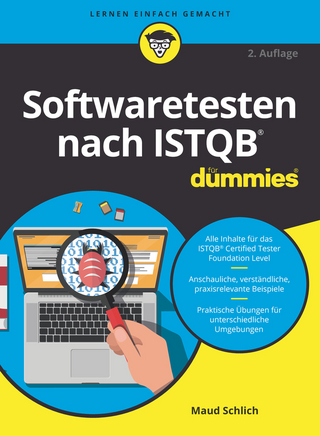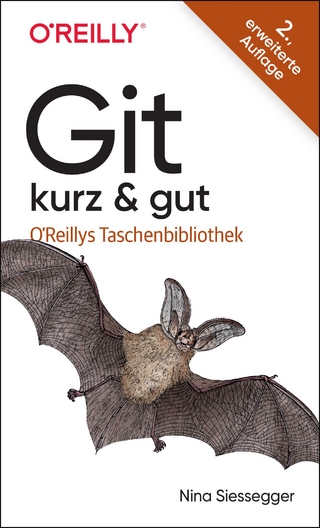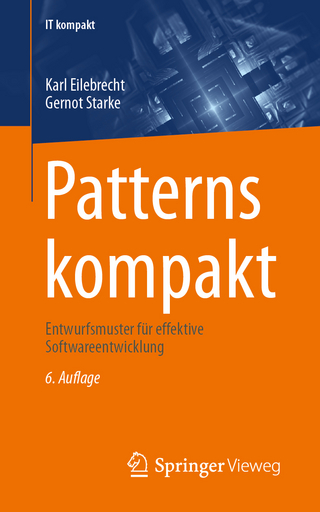
LIBRA
John Wiley & Sons Inc (Verlag)
978-0-7803-6009-9 (ISBN)
- Titel ist leider vergriffen;
keine Neuauflage - Artikel merken
"Could software reuse play an important role in your organization? For over two decades, a dedicated community of software engineering researchers and practitioners have wrestled with the challenges of introducing systematic reuse in large-scale software development. Successful systematic reuse relies on a set of learning disciplines that can transform IT-intensive groups and companies into knowledge creating organizations. These disciplines require shifts in fundamental, implicit beliefs about software technology, knowledge sharing, and organizational realities. Without a grasp of these underlying dynamics, reuse advocates may actually strengthen resistance to reuse initiatives in the engineering culture of software organizations, while rational concerns about cost justifications or technology transfer issues fall secondary. In the groundbreaking book, four experts with broad experience in reuse research, methods, technologies, and practice present a unique approach to reuse assessment and adoption, which directly addresses these challenges.
LIBRA offers a radically new, inquiry-based approach grounded in practical techniques for assessing an organization's readiness for reuse, as well as potential barriers. These techniques integrate reuse concepts with a diverse set of other disciplines, including organizational learning, dramatic theory, and belief mapping to affirm the critical role of culture, belief, and attitude in engineering success. LIBRA is essential reading for software project managers, strategic planners, CTOs and technology transfer agents, or working software engineers; and especially any advocate attempting to introduce reuse practices within an IT-intensive business setting. The multidisciplinary nature of this practical reference will also interest change agents in non-software fields, such as knowledge management and organizational development; and can serve as a graduate-level text for software engineering or management specialty courses. For a sneak peek at the front matter www ieee.org/organizations/pubs/press/Chapters/BailinFM.pdf or a look at the first chapter, www ieee.org/organizations/pubs/press/Chapters/BailinCh01.pdf" Sponsored by: IEEE Computer Society
About the Authors Sidney C. Bailin is founder and president of Knowledge Evolution, Inc. Previously, he was a vice president of engineering at Computer Technology Associates, where he played a leading role in that company's software technology program. Dr. Bailin's 22 years of software experience ranges from the development of production real-time communications systems to R & D in information agents. He has been active in the software reuse community for the past 14 years, and is best known in that community for introducing the KAPTUR methodology, which links reuse to rationale capture. Mark A. Simos is founder of Synquiry Technologies, Ltd., a Boston-area software company developing advanced technology for agent-based metadata modeling and application composition. He has 20 years of experience in software engineering R & D, including more than a decade's experience consulting on strategic reuse and domain engineering to numerous commercial and government organizations. Mr. Simos was principal developer of Organization Domain Modeling (ODM), a leading domain engineering methodology, and co-authored several other reuse guidebooks under the auspices of the DARPA STARS program, including the original LIBRA report. Larry Levine has 20 years of experience in consultation, product development, and management research. He is co-creator of Whole System Design (WSD), an approach integrating changes to culture, work processes, and systems. Mr. Levine has led or collaborated on strategic change initiatives within numerous healthcare, high technology and technology-enabled workplaces, including New England Memorial Hospital, Hewlett-Packard, Siemens-Nixdorf, Rational Software, U.S. DoD, New Brunswick Telephone (Canada), Shell Chemical, Shell Oil, L. L. Bean, Fidelity Investments, IBM, and EMC. Richard Creps, a senior staff applications software engineer with Lockheed Martin Corporation, has more than 23 years of commercial and defense-related software technology R & D experience. His technical leadership in software reuse and domain engineering on the DARPA STARS program culminated in the development of the original LIBRA report on which this book is based. Currently, Mr. Creps is applying his expertise to the development of advanced, collaborative military planning capabilities.
Perspectives on the Problem; LIBRA Conceptual Foundations; Core LIBRA Tools and Techniques; Reuse Adoption Scenario and Analysis; New Conversations; Putting LIBRA Into Practice; (Part Contents).
| Erscheint lt. Verlag | 12.9.2000 |
|---|---|
| Zusatzinfo | bibliography, index, references |
| Verlagsort | New York |
| Sprache | englisch |
| Maße | 155 x 228 mm |
| Gewicht | 312 g |
| Einbandart | Paperback |
| Themenwelt | Mathematik / Informatik ► Informatik ► Software Entwicklung |
| Mathematik / Informatik ► Informatik ► Theorie / Studium | |
| Technik ► Elektrotechnik / Energietechnik | |
| ISBN-10 | 0-7803-6009-5 / 0780360095 |
| ISBN-13 | 978-0-7803-6009-9 / 9780780360099 |
| Zustand | Neuware |
| Haben Sie eine Frage zum Produkt? |
aus dem Bereich


